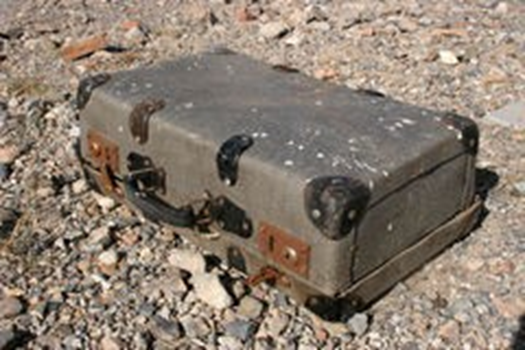
To listen to today’s reflection as a podcast, click here
Beirut, Lebanon, was once considered one of the most beautiful cities in the world. It was known as the Paris of the Middle East.
All that changed during the Lebanese civil war of the 1970s. Beirut was devastated. Citizens fled the city as fast as they could.
Sami was a Lebanese Christian who, with his family, chose to stay behind.
One day when Sami and his wife were driving along a major highway, they spotted a suitcase lying on the shoulder. Sami got out to investigate. “Don’t go near it!” his wife pleaded, traumatized by the number of roadside bombs that had been planted in the area.
Sami carefully ran his hands all around the suitcase. Then he lifted it. “I think there’s something in it!” he said.
If that was intended to reassure his wife, it didn’t work. To her utter horror, Sami put the suitcase into their car and drove it home.
After failing to find any identifying marks, he finally decided to open it.
It was filled to the rim with money.
There was a business card inside. Sami dialed the number. A male voice answered. Sami said, “Sir, have you lost something?” There was a long pause before the man responded. “Have you found it?”
Sami described the suitcase and its contents. The man was overjoyed. His family had liquidated all their assets. They had been rushing to the airport when, in the chaos, the suitcase had somehow become lost.
Now the man insisted that Sami come to his house so his family could meet, as he put it, the last honest man in Beirut.
Sami made the trip and returned the money. The head of the household was almost speechless. “This is our treasure,” he said. This was his family’s ultimate security.
“If I may,” said Sami, “let me show you my treasure. In fact, I want you to have this.”
He placed into their hands a copy of the Bible – the very first Bible they had ever owned – setting them on a path to discover a whole new kind of security.
Your security is whatever you think, you hope, and you assume will take care of you, no matter what.
Jesus offers his own take on this subject in one of the shortest of his short stories, which are known as parables: “The kingdom of heaven is like treasure hidden in a field. When a man found it, he hid it again, and then in his joy went and sold all he had and bought that field” (Matthew 13:44).
There wasn’t anything resembling a trustworthy banking system until more than a thousand years after the time of the New Testament.
If you needed to secure your nest egg, what could you do?
You could hide it in the ground. The owner of the treasure, unfortunately, might die before revealing its location. And if someone stumbled upon it, the money reverted not to its finder, but to the new owner of the land.
That’s why, in Jesus’ story, the digger who makes the discovery of a lifetime knows exactly what he has to do. He has to buy that property. This would not have been as easy as contacting a local real estate agent and putting an offer on the table. Ancestral lands were passed from generation to generation. Families would be exceedingly reluctant to part with the very soil where parents, grandparents, and great-grandparents had eked out their existence.
So the one who has discovered the hidden riches will have to count the cost
Is he willing to surrender an astronomical sum – perhaps his entire net worth – in order to obtain the greatest treasure he’s ever seen?
That’s what Jesus is asking us: “What’s it worth to you to have a relationship with me? What will you put on the table? Will you turn your back on that habit you simply cannot give up? Or the prestige you’ve worked your whole life to achieve? Or your need to be in control of the next 24 hours? Or the dreams you have for your children, the ones you’re hoping will validate your identity as a good parent?”
It’s a question that ought to take our breath away.
We have some options, of course.
We can pretend that Jesus wasn’t really being serious. Or we can gamble that the asking price, between now and the day we die, will somehow go down. Or we can buy a Powerball ticket, or a bucket of tickets, and hope for the best.
Then again, we can believe that Jesus was being entirely serious.
And we can accept his invitation:
We give up a life we cannot keep in order to gain a life we can never lose.
That’s the one sure way that life’s greatest treasure becomes ours.
